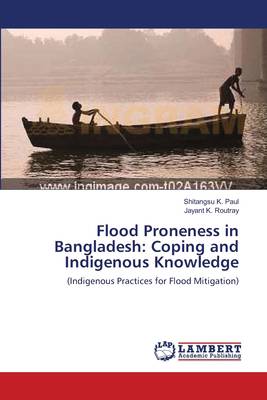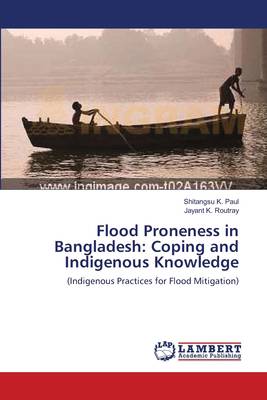
Je cadeautjes zeker op tijd in huis hebben voor de feestdagen? Kom langs in onze winkels en vind het perfecte geschenk!
- Afhalen na 1 uur in een winkel met voorraad
- Gratis thuislevering in België vanaf € 30
- Ruim aanbod met 7 miljoen producten
Je cadeautjes zeker op tijd in huis hebben voor de feestdagen? Kom langs in onze winkels en vind het perfecte geschenk!
- Afhalen na 1 uur in een winkel met voorraad
- Gratis thuislevering in België vanaf € 30
- Ruim aanbod met 7 miljoen producten
Zoeken
Flood Proneness in Bangladesh: Coping and Indigenous Knowledge
(Indigenous Practices for Flood Mitigation)
Shitangsu K. Paul, Jayant K. Routray
Paperback | Engels
€ 71,45
+ 142 punten
Omschrijving
The book documents the historical perspective of floods in Bangladesh with environmental, socio- economic and infrastructural impacts. The study intensively focuses on two villages of different geophysical conditions and addresses the indigenous practices and coping ability of local people. The book reports that people in an area with low flooding and with better socioeconomic circumstances are more likely to cope with impacts compared to people in areas with high and sudden flooding. Similarly, households' ability to cope varies depending on people's socioeconomic conditions, such as education, income and occupation. Although floods in Bangladesh generate socioeconomic misery and cause damage to the environment, health and infrastructure, people's indigenous coping strategies have helped them to reduce significantly their vulnerability. Such flood-mitigating strategies should be well recognized and emphasized further via proper dissemination of information through an early-warning system and subsequently external assistance.
Specificaties
Betrokkenen
- Auteur(s):
- Uitgeverij:
Inhoud
- Aantal bladzijden:
- 100
- Taal:
- Engels
Eigenschappen
- Productcode (EAN):
- 9783838302690
- Verschijningsdatum:
- 15/05/2010
- Uitvoering:
- Paperback
- Afmetingen:
- 150 mm x 6 mm
- Gewicht:
- 151 g

Alleen bij Standaard Boekhandel
+ 142 punten op je klantenkaart van Standaard Boekhandel
Beoordelingen
We publiceren alleen reviews die voldoen aan de voorwaarden voor reviews. Bekijk onze voorwaarden voor reviews.









